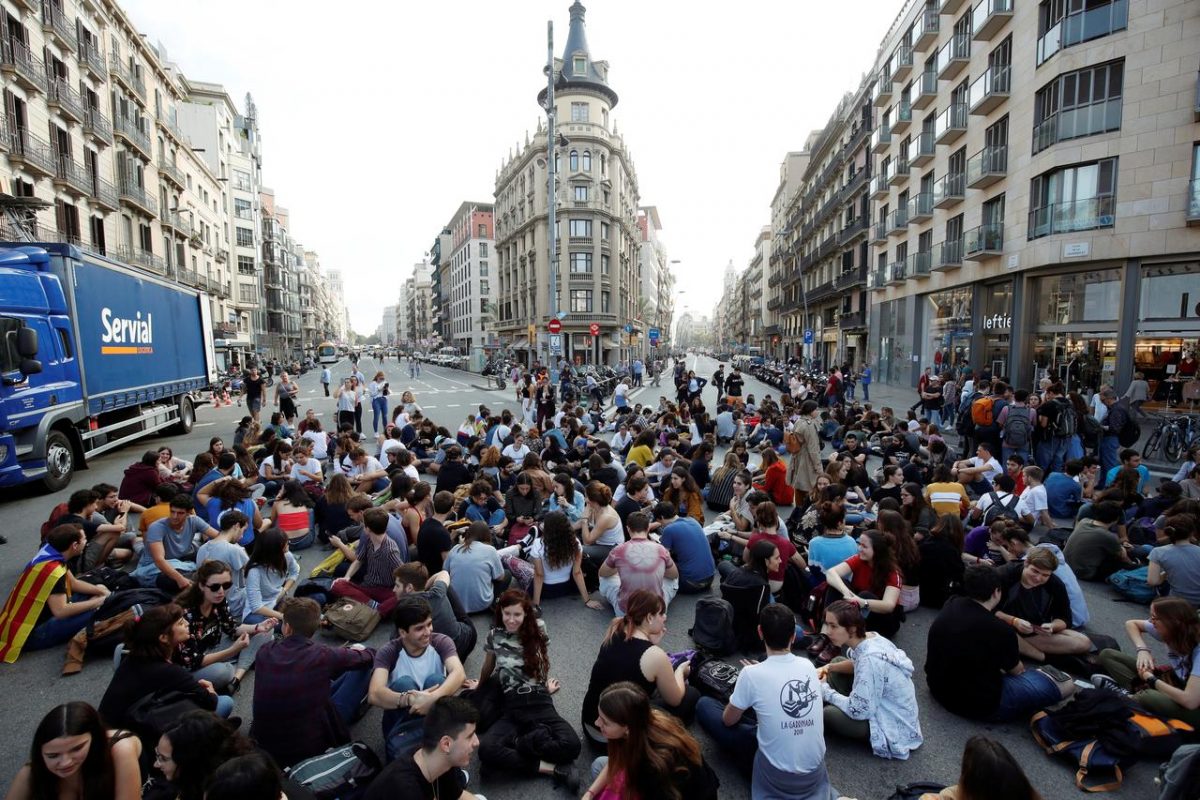MADRID, (Reuters) – Spain’s Supreme Court today sentenced nine separatist leaders from Catalonia to between nine and 13 years in prison for sedition over their role in a failed independence bid, triggering protests across the region.
Three other defendants who were also on trial for their involvement in the October 2017 referendum held in spite of a ban and a short-lived independence declaration, were found guilty only of disobedience and not sentenced to prison.
All defendants were acquitted of the gravest charge, rebellion, but leading separatists were quick to condemn the court’s decision and the jailed men sent out messages of defiance, urging people to take to the streets.
Former head of Catalonia’s regional government, Carles Puigdemont, said the prison sentences were an “atrocity”, and the head of the regional parliament Roger Torrent called them an “attack on democracy”.
In Barcelona, three main streets were blocked by protesters holding signs calling for “Freedom for political prisoners”. Outside the pro-independence Omnium Cultural headquarters in Barcelona, a crowd chanted “We’ll do it again” – a slogan used by separatist supporters who want to hold another referendum.
Protesters in Tarragona blocked the A7 highway to Barcelona and several regional roads across Catalonia, officials at the Catalan road traffic agency said. An earlier disruption to the regional train network outside the town of Girona, a separatist stronghold, had ended.
Much is at stake in how the court’s decision will be received, both for Spain and for its wealthiest region. Catalonia’s independence drive attracted worldwide attention and triggered Spain’s biggest political crisis in decades and unnerved financial markets.
Separatist protests have been largely peaceful but police sources have said authorities are prepared for any violence. Spanish authorities are keen to avoid any condemnation from abroad of the sentence as too draconian, and the separatist movement will have to decide how to react to the ruling.
The jailed separatists said via social media that they would carry on their fight.
“Nine years in prison won’t end my optimism. Catalonia will be independent if we persist. Let us demonstrate without fear, let us move forward determinedly from non-violence to freedom,” said Jordi Sanchez, who was sentenced to nine years in jail. Sanchez was the leader of the Catalan National Assembly (ANC) grassroots movement.
The regional head of Catalonia, separatist Quim Torra, called for an amnesty for all 12 leaders and said he would seek an urgent meeting with Spain’s King Felipe VI and acting Prime Minister Pedro Sanchez.
“We demand the release of political prisoners and of those in exile. We demand amnesty … for all those who have been persecuted,” Torra said in a televised speech.
The longest prison term – 13 years – went to the former deputy leader of the Catalan regional government, Oriol Junqueras.
The court convicted Junqueras and eight other leaders on charges of sedition and four of them of misuse of public funds, the court ruling showed.
“What happened on October 1 was not just a demonstration or a massive act of citizen protest. If that had been the case, there would have been no criminal sentencing. It was a tumultuous uprising encouraged by the accused, among many others,” the Madrid court said in its ruling, delivered in writing rather than in an open session.
After the ruling was published, the CDR grassroots movement tweeted: “It’s time to rise up against the authoritarian fascism of the Spanish state and its accomplices. It is time for the #RevoltaPopular (popular revolt).”
The government has said it is ready to take direct control of Catalonia as it did in 2017 if secessionist leaders break the law.
“The sentence must be carried out and complied with,” acting public works minister Jose Luis Abalos told public broadcaster TVE. “In Catalonia, there is a need for clear and responsible leadership on behalf of separatists.”
The ruling is likely to colour a national election on Nov. 10, Spain’s fourth in four years, and influence the direction taken by the separatist movement.
An opinion poll in July showed 48.3% of Catalans against secession and 44% in favour.

